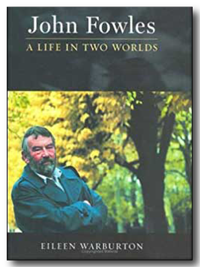We receive lots of e-mail at this site, much of it asking questions about John Fowles and his work. One question in particular keeps popping up again and again:
“What does the quotation at the end of The Magus mean?”
So, in order to save time (for both those asking the question and us), here’s the scoop:
cras amet qui numquam amavit quique amavit cras amet
The opening lines of an anonymous Latin lyric titled The Vigil of Venus (3rd century A.D.), it translates to:
“Tomorrow let him love, who has never loved; he who has loved, let him love tomorrow.”
An alternate translation, submitted by Professor Andrey Kravtsov of New Mexico State University, is:
“Let those love now who’ve never loved; let those who’ve loved, love yet again.”
It seems fairly clear that Fowles is indicating, through the quote, his preferred resolution to the story as it pertains to Nicholas and Alison. Although ultimately, as Fowles has noted, it is up to the reader to come up with his or her own interpretation.
In fact, Fowles himself is not averse to ownership of multiple interpretations of the ending (a quality he subsequently demonstrated, literally, in The French Lieutenant’s Woman). The following anecdote is telling:
In response to a gentle letter from a New York lawyer, dying of cancer in a hospital, who said he very much wanted the couple to be reunited, Fowles wrote back, “Yes, they were.” On the same day he got a “horrid” letter from an American woman who angrily demanded, “Why can’t you say what you mean, and for God’s sake, what happened in the end?” Fowles replied curtly: “They never saw each other again.”*
*From The French Lieutenant’s Woman’s Man: Novelist John Fowles by Richard B. Stolley.
